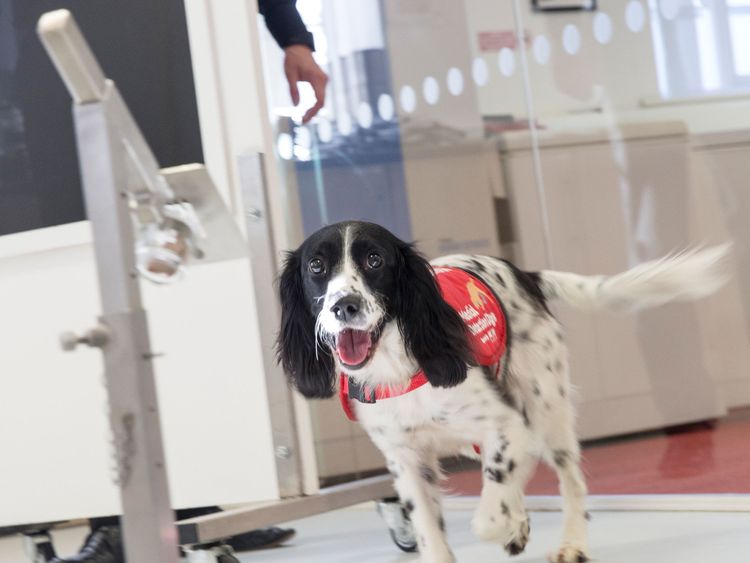Dogs could potentially be used to help literally sniff out malaria in people through an odour in their socks, according to new research.
The animals can be trained to detect the scent of the malaria parasite, which is transmitted to people through the bites of the infected Anopheles mosquito, experts have said.
Researchers gave nylon socks to a group of school-age children in the Upper River region of the Gambia in west Africa.
Thirty of the participants tested as malaria positive using finger prick blood tests, and 145 were uninfected.
The children wore the socks overnight, and the samples were then sent to the Medical Detection Dogs charity in Milton Keynes, where three dogs have now been trained to distinguish between the scent of those infected with the malaria parasite and those who were uninfected.
A labrador-retriever cross called Lexi, a labrador called Sally and a springer spaniel called Freya have all been trained to make the distinction – and managed to correctly identify 70% of the socks worn by malaria-positive children, and 90% of the samples without malaria parasites.
The research has been conducted by experts at Durham University, the medical research council unit in The Gambia and the London School of Hygiene and Tropical Medicine.
Chelsi Squires, a research scientist at the London School of Hygiene and Tropical Medicine, told Sky News: "When you are malaria positive and you actually have that infection, what the parasite does, is it changes your body odour, so your body odour is the way that mosquitoes are able to detect you and able find you as a blood source.
"Dogs are innately super smellers.
"They actually have two levels of smell – they can draw air up into their noses and back into an organ quite deep into their throat, so this allows them to take a much deeper breath than you or I would be able to. So that allows them to have a higher accuracy."
Although the research is in its early stages, Annemarie Meyer from the Malaria No More organisation said it has exciting implications for stopping malaria spreading, since mosquitoes can become carriers of the disease through biting an infected person.

"It's finding a new way to identify people who may not feel sick, but are carrying malaria in their systems and could therefore pass it to other people through the bite of a mosquito," she told Sky News.
"So for countries that have eliminated, it's a really interesting potential new way they could protect their borders and keep their countries malaria free."
The researchers say sniffer dogs at ports and airports could be a quick, portable and non-invasive way to test people to see if they are carrying malaria.
"This could also ensure that people, many of whom might be unaware they are infected with the malaria parasite, receive antimalarial treatment for the disease," said Professor Steve Lindsay from the department of biosciences at Durham University.
Researchers say they are hoping they can now move on to the next step, seeing if dogs can sniff out the parasite not just on socks but directly in humans themselves.
More from Science & Tech
The World Health Organisation says that since 2000, six countries have been certified as malaria free, with another 12 reporting that no malaria cases have originated within their borders.
But progress in fighting the disease worldwide has stalled; there were 216 million malaria cases across the globe in 2016, five million more than the year before.
[contf] [contfnew] 
Sky News
[contfnewc] [contfnewc]







